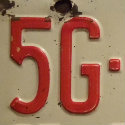
More avid use of virtual and augmented reality services, and extra guzzling on video streaming, have seen SKT's 5G users – on average – consume twice as much data as 4G consumers.
This was one of the findings from the South Korean operator's 5G report card almost one year on from commercial launch in April 2019.
In the period between December 2019 and February 2020, SKT found that average monthly data usage of subscribers – for those who switched devices from LTE to 5G – increased about twofold from 14.5GB to 28.5GB. It meant that average monthly data consumption of SKT's 5G subscribers reached 62,000TB over the same three-month period.
There was no talk of any network strain from SKT, but, assuming 5G gains more popularity, coping with much heftier data volumes may well become an issue. In the company's earnings conference call for fiscal 2019, Poong Young Yoon, SKT's chief financial officer, said the aim was to rack up between 6 and 7 million 5G subs by the end of this year.
In the meantime, SKT seems more than happy to encourage greater 5G data consumption. One way the operator has apparently managed to increase customers' "5G experience and acceptance" is through the creation of around 70 so-called "5G clusters" – which have more basestations than normal coverage – in commercial districts and densely populated areas. Around 1 million customers have visited these clusters to experience "differentiated 5G services," such as AR/VR offerings in the shape of "Jump AR Zoo" and "5G LoL Park."
As of February 2020, SKT said 5G subscribers were using seven times more VR services, 3.6 times more video steaming services, and 2.7 times more game apps than LTE subscribers.
Club 30-50
Another finding is that 5G has much greater appeal to customers in their 30s and 40s than any other age group. This is perhaps not too much of a surprise. Club 30-50, generally speaking, is not too old to get befuddled by new tech. And those in their 30s and 40s will likely have much deeper pockets than teens or people in their 20s.
According to SKT, the 30-50 age group accounted for 53% of its 5G subscriber base, which now totals 2.2 million. LTE is evidently more of a demographic leveler. Those in their 30s and 40s account for 32% of SKT's 4G subscriber base.
Collaboration's what you need
Park Jung-ho, SKT's CEO, spoke at CES 2020 about the need for "hyper-collaboration" with both South Korean ICT companies and global companies to explore different areas, including artificial intelligence.
It was a theme picked up again in SKT's one-year 5G review. The operator has already shown JV appetite in online gaming and is purportedly working closely with Microsoft in this field. (See SKT makes moves in healthcare, gaming.)
Want to know more about 5G? Check out our dedicated 5G content channel here on Light Reading.
The 5G business case is hardly a slam dunk, however. South Korea's Ministry of Science and ICT has put pressure on SKT and rivals KLT Corp and LG Uplus to up a previous commitment to spend 2.7 trillion Korean won ($2.3 billion) on 5G infrastructure during the first six months of 2020, to KRW4 trillion ($3.4 billion). (See South Korea's big three squeezed for more 5G investment.)
SKT's capex was KRW2.9 trillion ($2.4 billion) during 2019, up 37% from 2018, largely because of 5G coverage expansion. It pinned much of the blame for a 7.6% year-on-year dip in operating income on rising 5G costs.
For all its capex travails, SKT has built up a fair lead on 5G subs. By the end of 2019, KT had 1.4 million and LG Uplus 1.2 million.
— Ken Wieland, contributing editor, special to Light Reading
Read more about:
AsiaAbout the Author(s)
You May Also Like











